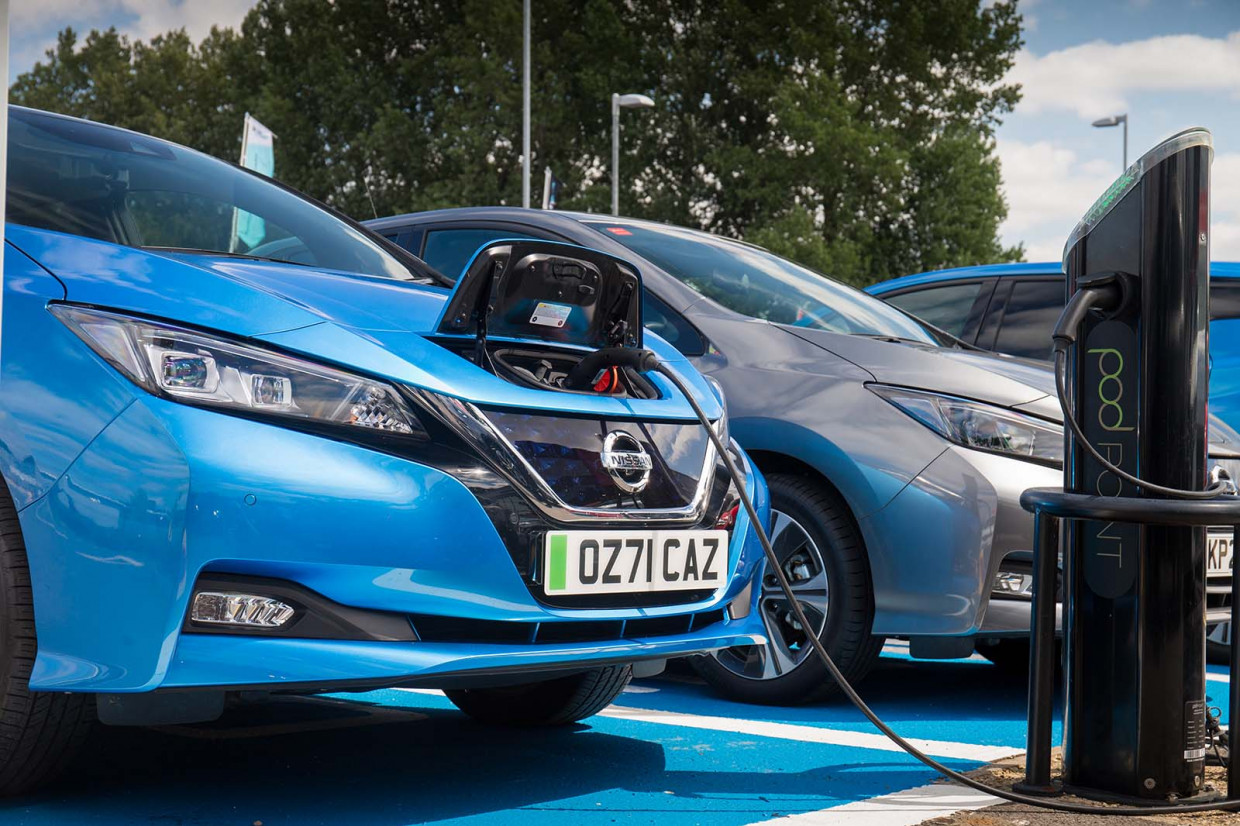
The UK government is set to announce a national infrastructure strategy for electric vehicle charging later this week – and car industry bosses want it to include legally binding targets for expanding chargepoint provision.
The plan, which the government has been working on for several months, is due on Friday, and is designed to help ensure that UK charging network growth remains in line with the rapid increase in electric vehicle sales.
Speaking during the SMMT Electrified conference Trudy Harrison MP, the parliamentary under-secretary of state for transport, vowed that the UK government would help create "one of the best electric vehicle charging networks in the world".
She added: "As demand for EVs is approaching a tipping point the transition to electric will be organic, not manufactured in Whitehall, and affordable. Not idealistic, but logical. We've got to make EV technology part and parcel of our everyday experience, and that's why we're expediting our efforts to create one of the best electric vehicle networks in the world."
Harrison said the government strategy "will define our vision for the continued rollout of charging infrastructure, focusing on the transition from early adoption to mass market uptake and setting out our next steps to address the barriers to private investment, levelling up charge point provision and making it easier than ever for drivers to go electric."
Harrison said that the plan would include working with the car industry, charge point providers and local government, saying: "it will be a combined effort to make charging not just convenient and commonplace, but growing confidence in the infrastructure is not just about getting more charging points in the ground."
Noting that home charging will be "central to future driver behaviour", Harrison said the government recognised that "can also be a barrier. If you don't have access to a driveway at your home, you might think twice about taking the plunge into EVs."
She said the charging infrastructure plan would "refocus" on domestic charging provision for rented properties and blocks of flats, to ensure they offered "the same opportunities as those with home charging on a driveway. Our reforms will enabling owners and landlords to invest in the right technology in the right place at the right time."
Car industry: infrastructure push is needed
Meanwhile the Society of Motor Manufacturers and Traders has just revealed a new report highlighting £10.8 billion investment by the car industry in electrification in the last decade. But it has warned that rapidly increasing investment is not being matched by a similar push to develop the infrastructure required for electric vehicle charging.
SMMT boss Mike Hawes noted that there were just six EVs on sale in the UK 10 years ago, but there are now 140 EVs – with 55 more due in the next year. Hawes added: "One in six cars sold in the UK in pure electric.
"Despite this, the government is setting the industry incredibly tough regulation. In 2035 we're required to the end of sale of non-zero emission cars, with vans following 2040.
"This year, we'll get a zero emission vehicle mandate, something that will seek to dictate the pace of future market transition, despite the fact that that market is moving rapidly. As an industry, we're up for that challenge, but we cannot deliver for society without another regulation, the right to charge."
Currently, there is one rapid charger for every 32 BEVs on the roads of the UK, and while that is in line with other countries the uneven nature of those chargers – with the bulk concentrated in London – is a concern. Hawes also said that ratio is getting worse as EV sales accelerate faster than the charging infrastructure grows.
Noting that charging infrastructure is particularly crucial given one in three UK households do not have off-street parking to installed charging points, Hawes said: "We need more rapid chargers to meet rising sales. Even more critical is the need for greater investment in public charging to get that network up to speed to meet this transition that's rapidly accelerating. That's why we're calling for national plan to get the right charges in the right place that has to do for binding targets on infrastructure to match those that we as an industry."
The SMMT wants the plan to be nationally coordinated and locally delivered, and overseen by a regulator.
The SMMT has also highlighted that investment in battery production for electric vehicles is key for future growth. The £10.7 billion investment figure the SMMT calculated includes production commitments in new battery 'gigafactories' that are estimated to take total annual UK battery production to 41GWh by 2027. The UK requires an estimated 60GWh of battery production capacity by 2030.
Noting that the European Union is on course to have a production capacity of 1.5TWh by 2040, the SMMT wants the government to adopt a streamlined process to obtain permits and licences for battery factory approval, to speed up investment in that area.
READ MORE
Subscribe to the Move Electric newsletter
e-CARS
New Volkswagen ID Buzz: everything you need to know
How efficient are electric cars?
e-BIKES
Ducati expands e-bike range with first racing machine
e-MOTORBIKES
New Yamaha Neo is Europe-bound '50cc equivalent' electric moped
Electric Motion Epure Race e-motorbike review
e-SCOOTERS
Eskuta KS-450 e-scooter review
Taito unveils innovative new three-wheeled electric scooter
e-WORLD
Electric surfboard firm Awake aims to make waves with first e-foil
Volta Zero electric truck can 'dramatically improve' inner-city road safety

